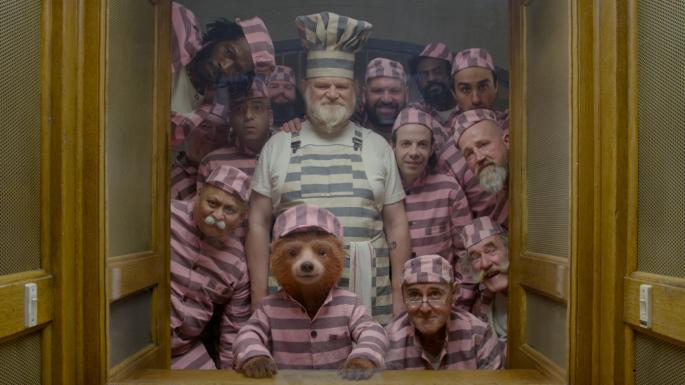Despite the fact that Paddington Bear is an immigrant, the “Paddington” series remains delightful and family friendly in a chaotic era, with its third movie coming out later this year.
Theatre-goers of all ages can enjoy the animated bear’s adventures from Darkest Peru to the streets of London, while at the same time receiving a reminder to treat others with respect. However, there is another layer to this film series: an unanticipated comment on race.
While the series does not explicitly address the darkest parts of colonialism and discrimination, it serves to foster kindness and understanding toward people who are different from the majority of society, specifically people from different cultures.
Warning: there are spoilers from the first two Paddington movies.
Colonialism
While the theme of showing respect to those who are different is clear, Paddington hones in on the topics of colonialism, immigration and discrimination against minorities. It all begins when the Peruvian Bear family becomes enamored with London culture after a British explorer encounters them.
After realizing that the bears can speak, the explorer Montgomery Clyde narrates, “I become friends with the bears and even name them. The female after my dear departed mother and the male after an exotic boxer I once met in a bar.”
For some, this could be a painful reminder of western influence on one of the most basic components of a culture: the loss of identity through renaming.
Although the Bears actually do have bear names, as we learn later when Paddington tries to teach his to the Browns, they find it unpronounceable and name him Paddington, the name of a London train station.
Clyde leaves the Bear family with a recipe for marmalade, trinkets and tapes to help them learn English, the language they speak for the rest of the film. The Bears become enamored with London’s language and culture, completely changing their way of life to center on marmalade and a future trip to England.
Immigration
The movie takes a darker turn when the family’s jungle home is destroyed by a natural disaster. Aunt Lucy then sends Paddington to London so that he can have a safe place to live, but when he arrives he realizes that London’s culture is very different from what they learned in Clyde’s tapes.
The situation echoes the story of immigrants who flee from disasters in their home country, whether it is due to natural disaster, war or genocide.
As the young bear waits alone in a train station thinking that someone will help him, he experienced prejudice for the first time in the form of Mr. Brown:
BROWN: “Oh, stranger danger.”
MRS. BROWN: “What?”
BROWN: “Keep your eyes down. There’s some sort of bear over there. Probably selling something.”
Despite Mr. Brown’s aversion, his wife takes pity on the lonely bear and invites him into their home for the night. Still, his trials with narrow-minded people are not over.
The Browns’ neighbor, Mr. Curry, immediately brings his prejudices into his interactions with the bear, and the relationship does not improve for the majority of the movie. He even helps the villain, Millicent, to capture Paddington because he believed that she would return him to his home country:
MILLICENT: “And being such a pillar of the community, I can see why having that beast move in next door would upset you so.”
CURRY: “I suppose I should be grateful that it’s only one bear.”
MILLICENT: “Oh, but it always starts with just one, Mr. Curry. Soon, the whole street will be crawling with them. Drains clogged with fur. Buns threw at old ladies. Raucous all-night picnics.”
CURRY: “What can we do?”
MILLICENT: “I have certain connections. If I can get hold of the bear, I can see that he’s sent where he belongs, no questions asked.”
Millicent feeds on Mr. Curry’s deep-seated opinions about bears to convince him to take action. The parallels between Paddington’s story and the current rhetoric about immigration are astounding: the community is overwhelmed with fear.
To them, immigrants are all miscreants that cause problems in society. Mr. Curry only relents when he realizes that the psychotic woman actually wants to murder the bear and rejects the older man’s romantic advances. Millicent represents more than just a villain for the movie; she characterizes the dehumanization of immigrants.
Discrimination
In “Paddington 2,” which came out in Jan. of 2018, the focus is less on whether immigrants should be allowed to live in a new country and more on the prejudices they face in the justice system.
Rather than discriminate against Paddington out of ethnocentrism, Phoenix Buchanan treats the bear in the same way he regards anyone else, but the flamboyant showman, which is played by Hugh Grant, also takes advantage of discrimination against bears to frame Paddington.
Although Paddington has established himself in the community, his good reputation doesn’t save him from being wrongly incarcerated. The comedy of the first movie centers on Paddington’s troubles with London technology and culture, and the second installment further explores the serious consequences of these misunderstandings.
Because of his difficulties with the still largely foreign world, he starts out his trial on the wrong side of the judge, having met him before and accidentally shaved his head.

Even though the owner did not believe that the young bear committed the crime, Paddington is then is sent to prison, an unfair decision for a first offense, bearing a strong connection to the recent protests against bias in the justice system.
Of course, since “Paddington 2” came out so recently, it is unavoidably part of the social conversation about immigration.
Yet everything ends well. Although Paddington is not able to count on the judicial system to get out of prison, he can rely on his new adoptive family, the Browns.
The movies have come full circle so far: first addressing colonialism, immigration, then discrimination in the lives of minorities, which can almost guarantee a continued discussion in the upcoming third installation.
While these topics might go over children’s heads, they introduce kids to the evergreen concepts of respect and difference, an interesting conversation that started long before and certainly won’t conclude soon.
















